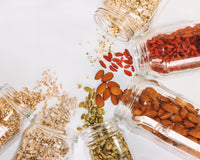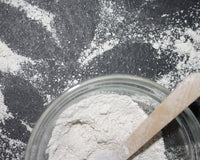Our bodies are pretty great. As well as keeping us alive, they also help keep us protected in many ways.
If your body recognizes something foreign, such as plant pollen, an invading microbe or chemical, your immune system will become activated. This usually triggers the inflammation process. Inflammation helps combat illness and can defend your body from harm, and most of the time, it’s a vital part of the healing process.
However, as with many things in life, too much of a good thing can become bad. If inflammation continues on a daily basis, that’s when it may become detrimental to your health. Many major diseases have been closely linked to chronic inflammation.
What is an Anti-Inflammatory Diet?
Studies suggest that the best way to reduce inflammation isn’t necessarily through medicine, but through your diet. Whilst medication and other treatments are still important, a change in what you eat may be a large, contributing factor, alongside lowering stress, and increasing activity levels.
Whilst some foods contain ingredients that can trigger or worsen inflammation (more on that later), there’s also a whole host of delicious foods than can aid in lowering it. Choose healthy and nutritious plant-based foods which are already rich in fibre, antioxidants, healthy fats, and vitamins.
Who Can it Help?
As mentioned earlier, people with certain diseases are more prone to chronic inflammation. An anti-inflammatory diet may serve as a complementary therapy for many conditions that are exacerbated by chronic inflammation.
People suffering from diseases such as cancer, heart disease, diabetes, arthritis, IBS, and even Alzheimer's, can benefit from adding more anti-inflammatory foods to their diet. An anti-inflammatory diet might lessen the number of flare-ups you have, or it might help take your pain down a few notches.
An anti-inflammatory diet is widely regarded as healthy and good for you. So, even if it doesn't help your condition, or you do not have one currently, it can still help reduce your chances of developing other problems. So it’s a win-win in our book!
Foods to Eat
To reduce levels of inflammation, aim for an overall healthy, balanced diet. A healthy diet is beneficial not just for decreasing the risk of chronic diseases, but also for boosting your mood as well as overall quality of life.
However, if you want to improve your inflammation reduction even more, then these foods are some of the best options to add to your kitchen.
- Nuts – Aside from being rich in nutrients, important fatty acids and flavour, many different types of nuts create an anti-inflammatory effect on the body.
- Peppers – Provide the antioxidant quercetin, which can lessen inflammation associated with chronic diseases, like diabetes.
- Tomatoes – Rich in lycopene, which may be valuable for reducing pro-inflammatory compounds related to certain types of cancer.
- Mushrooms – These fungi’s contain phenols and other antioxidants that provide anti-inflammatory protection.
- Berries - Berries have antioxidants named anthocyanins which contain anti-inflammatory properties that may lower your risk of disease.
- Turmeric – Contains curcumin, a powerful anti-inflammatory compound, that studies have shown reduces inflammation in diseases such as arthritis, diabetes, and more.
- Garlic – Includes diallyl disulphide, an anti-inflammatory compound that may combat inflammation and can even help prohibit cartilage damage caused by arthritis.
- Olive Oil – The properties of oleocanthal, an antioxidant found in olive oil, have been likened to anti-inflammatory drugs such as ibuprofen.
- Leafy Greens - such as kale, spinach, and broccoli, pack a high antioxidant punch.
Foods to Avoid
So we’ve been through the foods to add to your diet to decrease inflammation, but what about the foods that can provoke and cause it? Unsurprisingly, the same foods that trigger inflammation are also usually considered bad for your health.
Here’s a list of foods you might want to cut back on, or avoid -
- Processed foods: such as fast food, crisps, chocolate, cakes.
- Refined carbs: like white bread, white rice, pasta, pastries, and biscuits.
- Fried foods: anything deep fried in oil - chips, chicken, fish, churros.
- Sugar-sweetened beverages: think fizzy pop, fruit drinks, sweet tea, and sports drinks.
- Processed meat: for example, sausages, bacon, deli meats, and pâtés.
- Trans fats: unsaturated fats like margarine and shortening.






